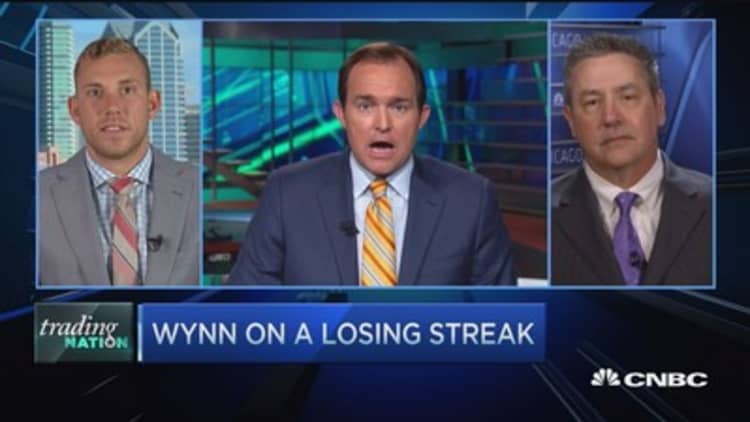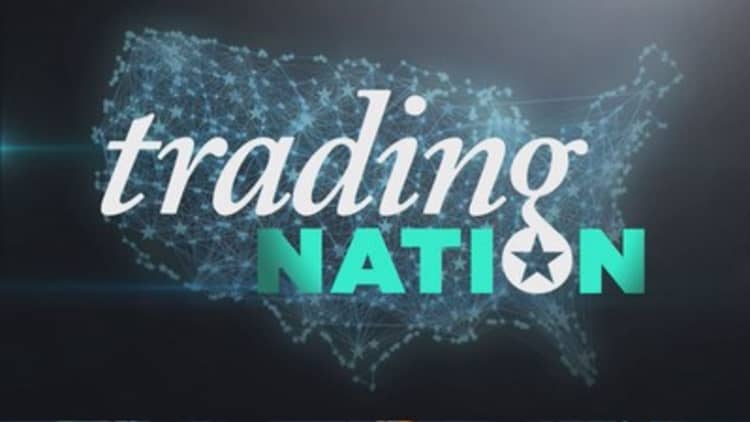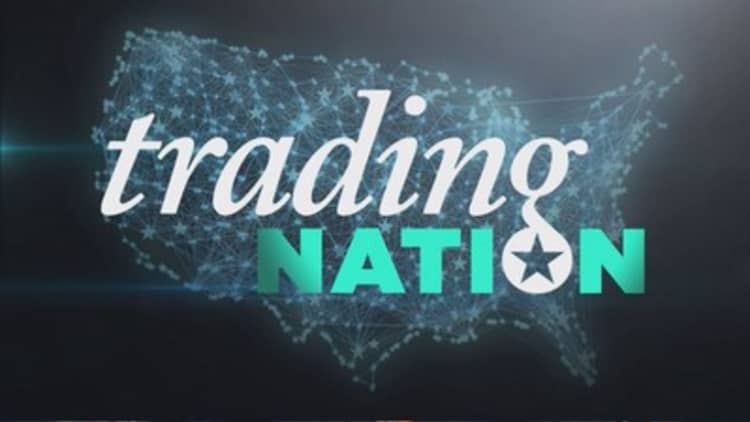


The deck just seems to be stacked against shares of Wynn Resorts.
The casino stock dropped 9.4 percent in the past week, making it the second-worst performer in the . The latest stitch of bad news was a Friday downgrade from Barclays, which cut their rating on the shares to 'Equal Weight' or neutral from 'Overweight,' due to continuing concerns about Asian high-rollers.
In Chinese gambling enclave Macau, Wynn is "among the casinos with the largest exposure to the VIP market, which is shrinking… In Las Vegas, Wynn's exposure to the high-end Baccarat gamer could cause that property to underperform in the near term," Barclays analyst Felicia Hendrix wrote.
Hendrix slashed her price target on the stock from to $105 from $160, reflecting "our view that a recovery in Macau may take longer than expected."
But the drumbeat of bad news in Macau, which is in the grips of an epic corruption crackdown, isn't the only thing weighing on the stock.
In a Monday filing, Wynn reported that T. Rowe Price, the stock's largest shareholder, slashed its stake in the company.
"People like to follow and look at what big shareholders are doing, and T. Rowe's move gives people pause," said Chris Jones, an analyst who covers the stock for Union Gaming Group. "And there was a lot of volume this week, so one has to wonder whether or not there are others taking similar action."
This comes after the disappointing earnings results reported in late April, when the company also decided to cut its quarterly dividend from $1.50 to $0.50.
Why it could get even worse for casino stocks
On the earnings conference call, CEO Steve Wynn saw fit to lambaste the idea that dividends cannot easily be cut, saying that its "foolhardy and immature and unsophisticated to issue dividends on borrowed money," and that fixed dividends are "baloney and any company that does that is irresponsible."
Wynn further saw fit to call out his largest shareholder, saying that he's choosing to cut dividends "as the single largest recipient of such distributions. There are a few institutions that—if you take T. Rowe Price—own more shares collectively, at least for the moment, but they're in individual pockets."
With the situation in Macau threatening to get worse before it gets better, the company missing analyst estimates, the CEO taking a somewhat scornful tone toward dividend-conscious investors, and the biggest holder slashing its ownership stake, it's not hard to imagine why so many have been driven to sell.
Want to be part of the Trading Nation? If you'd like to call into our live Monday show, email your name, number, and question to TradingNation@cnbc.com.






